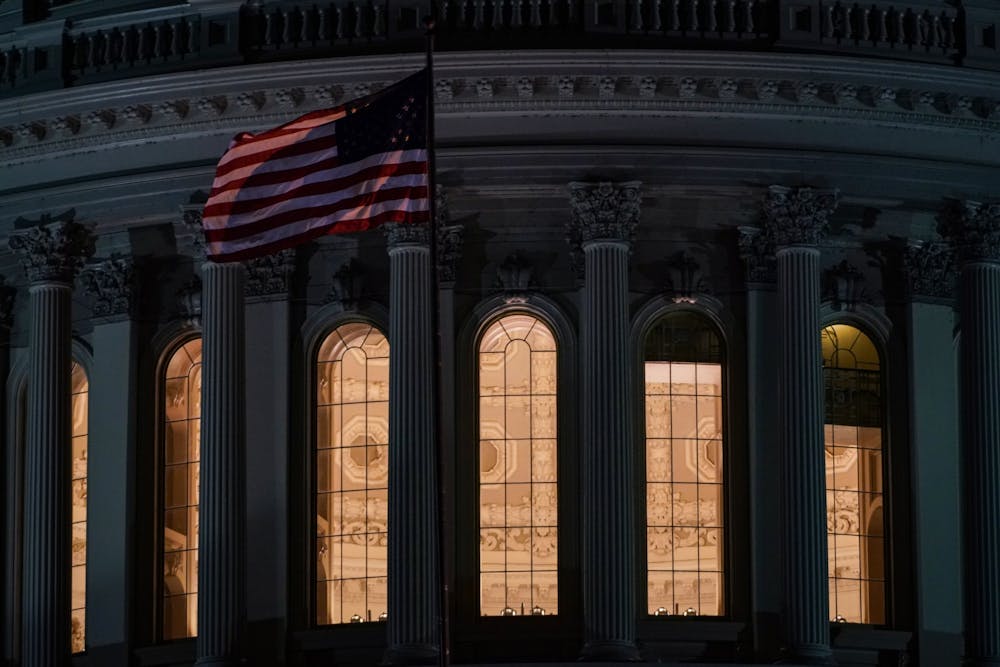
What it means to be patriotic is to take pride in the nation’s complex history and love thy country for where it is today. For Americans, this means alignment with the age-old ideals of the Great Experiment and acknowledgement that, in spite of the United States’ past and current shortcomings, we have come so far politically, economically, and socially. Every Fourth of July, we are reminded of our country’s greatness: only 250 years after our independence from a tyrannical monarchy, we have been exalted to global supremacy. Often seeded in this nationalist sentiment, however, is the folly of American exceptionalism — the idea that whether it be due to geographic advantages or the illustriousness of our founding documents, the United States was destined to rise above all others and remain in this position of eminence.
We need to rewrite the narrative of America’s place in history. We were not destined for anything nor blessed by divine providence. By falling victim to this presumptuous mentality, we could soon be outpaced in a number of key economic industries by international competitors and, thus, gradually lose the authority to lead talks on peaceful diplomacy, the climate crisis, and human rights, among other areas. A strategic combination of forward-thinking policies under the Biden administration can secure America’s role as the foremost global leader.
Long gone are the days when we could blindly assume that the United States would remain on top. In the aftermath of World War II, which left the European continent in shambles and in dire need of economic resuscitation, the United States decidedly took its spot as the world’s newest leading superpower. The following decades were not without a host of formidable challenges to U.S. dominance: the threat of Soviet communism, the supposed ascendency of Japan in the 1980s as the next largest economy, and the war against terrorism at the turn of the millennium. Ultimately, the United States refused to submit to any such obstacles, retaining its position as the world’s leader in almost every regard. However, there is no saying that this will last in the coming decades.
One pressing concern for the United States is its excessive reliance on foreign supply chains. In a number of sizable industries, from smartphones to electric vehicles, the United States has grown accustomed to a dependence on foreign countries for raw materials and manufacturing. For example, the manufacturing of semiconductors, which are a fundamental component of nearly every form of consumer technology, is concentrated in East Asia: 92% and 8% of advanced semiconductors under 10 nanometers are manufactured in Taiwan and South Korea, respectively. Any disruption to suppliers’ ability to deliver on their promises could severely impact U.S. business operations. Furthermore, as is true with Apple, companies' reliance on low-cost, highly skilled labor abroad has provided countries like China with the leverage to completely redefine the terms of their partnership in ways that will advance their occasionally questionable national interests, such as the theft of personally identifiable information.
Another threat to U.S. economic security is its outdated and deficient infrastructure. In most of our everyday lives, the implications of this are just power outages on stormy days and underdeveloped subway systems. However, we recently learned that substandard cyberinfrastructure can lead to debilitating consequences for the American economy. On April 29, the Colonial Pipeline, which supplies the nation with 2.5 million barrels of fuel daily, was struck by a ransomware attack that shut down the company’s operations and demanded roughly $5 million. On June 1, JBS Meat was hit by a similar group of hackers and paid $11 million. With the omnipresence of the Internet in every aspect of our lives, the United States is certainly at risk of both domestic hacks aiming to undermine the establishment and foreign hacks serving their countries’ wishes.
Unfortunately, these are just two of the many problems that may pose a near-existential threat to the United States. We cannot sit in our complacency and assume that this nation will forever be the world’s No. 1 economy. While we were not inherently destined for greatness, we should indeed strive for greatness so as to secure and advance America’s national interests in the future. That is what it means to be patriotic — to recognize that things need to be done to improve an already great country.
The current administration is putting forth plan after plan to catalyze America’s growth. For one, Biden signed Executive Order 14017 to comprehensively review America’s supply chains and devise methods of stimulating American manufacturing capabilities after decades of relegating this to foreign countries. As part of his Build Back Better program, he also launched the American Jobs Plan to modernize century-old infrastructure, namely transportation systems, drinking water pipelines, and the electric grid. Yet, more needs to be done on the cybersecurity front.
Long gone are the days when we could blindly assume that the United States would remain on top — unless we do something about it.
ANDY YOON is a College and Wharton sophomore from Seoul, South Korea. His email address is andyy327@wharton.upenn.edu.
The Daily Pennsylvanian is an independent, student-run newspaper. Please consider making a donation to support the coverage that shapes the University. Your generosity ensures a future of strong journalism at Penn.
Donate







